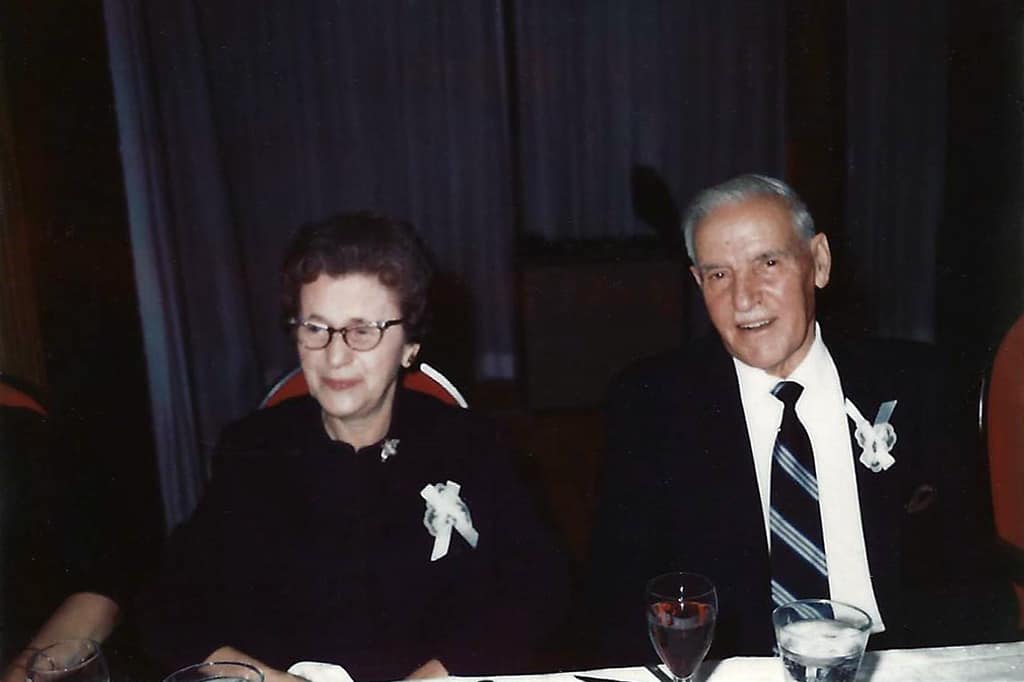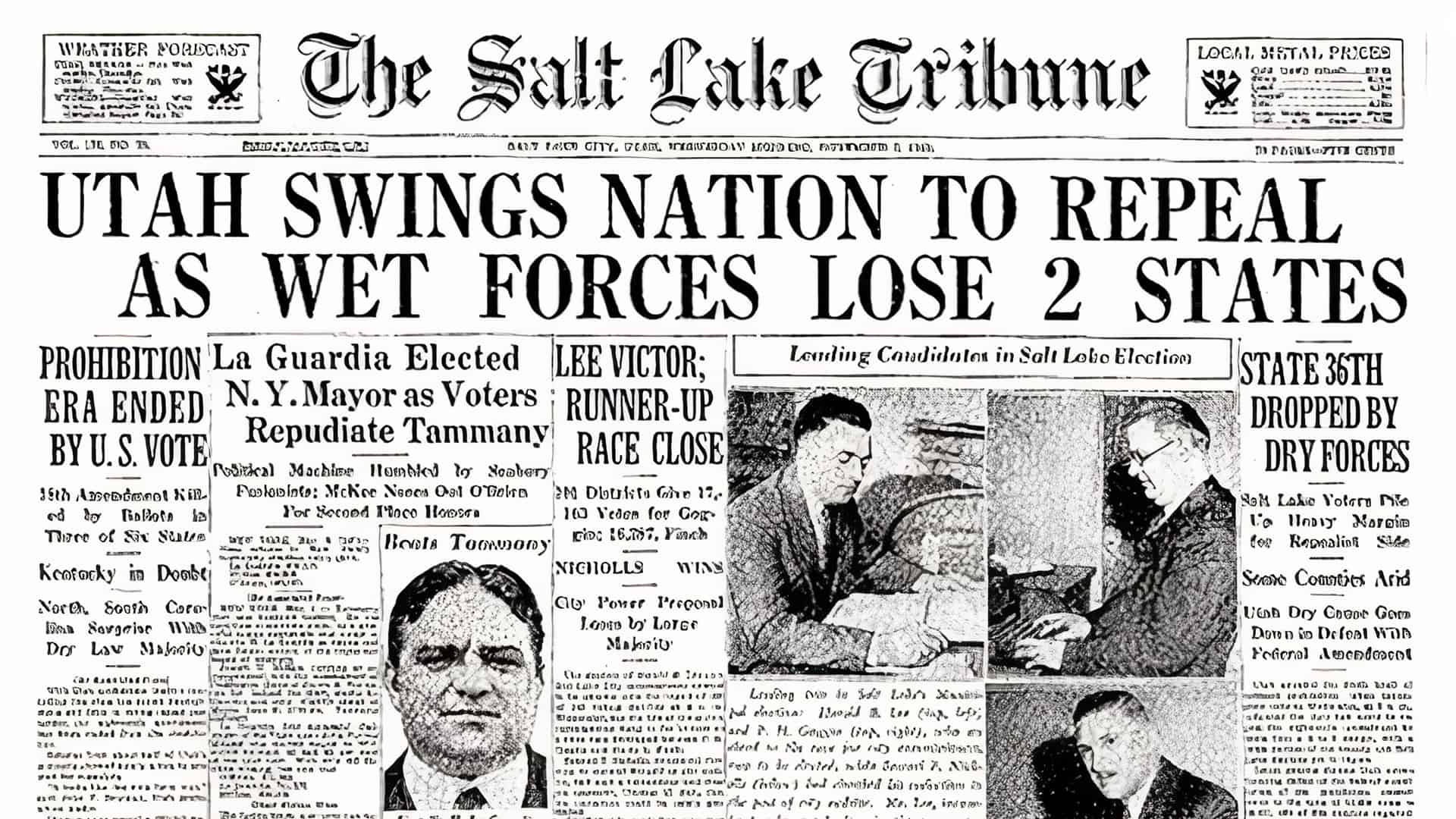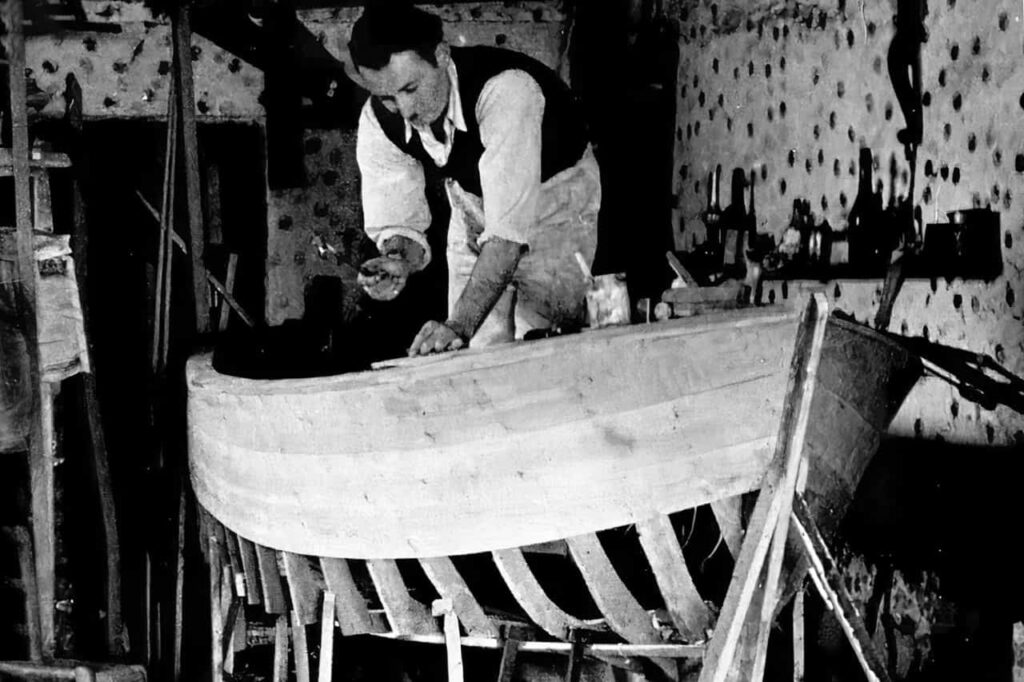Prohibition was an interesting time in our country’s history, an era from 1920 to 1933, when a United States Constitutional Amendment outlawed the production and sale of alcohol in the entire country. It was not the first (nor, indeed, the last) time that our country has sought to legislate morality in a way that ran contrary to the morals and the culture of a large portion of her citizenry.
While illicit business is as old as trade itself, in the case of the prohibition on alcohol, many people who would otherwise never dream of flouting the law did so with the federal prohibition on alcohol, often with the tolerance or collusion of the community, and sometimes with officialdom.
One such otherwise law-abiding American who distilled and sold alcohol in this era, in defiance of both state and federal laws, was William Souvall of Salt Lake City, Utah. Times, particularly as the Depression started to bite in 1930, were very difficult throughout the country, and as a husband and father with four young sons, the opportunity of “bootlegging” was one that was exceedingly attractive despite the many risks.
“Bootlegging” as a term was derived from concealing liquor flasks in one’s boots in defiance of temperance laws, but during Prohibition it generally meant anyone involved in the illicit liquor supply chain. William, generally known as “Bill” around town, had an “operation” which we might call vertically integrated, from distilling to distribution.
From Vasilios to Bill . . .
Born Vasilios Souvaliotis in the mountains above the Greek port of Patras in 1886, William (or Bill) came from a culture where winemaking and distilling of spirits was a way of life for millennia. Greece had freed herself from the Turks just over half a century earlier, but the legacy of four hundred years of Ottoman rule had produced a successor state with some of the same dysfunctions, and a populace with a deep distrust of the state, relying on more informal codes of conduct based on personal and kinship ties. Such conditions also fostered a knack for commerce since few industrial jobs were available in Greece, and this savvy had brought generations of Greeks fortune abroad, particularly in shipping.
Like hundreds of thousands of Greeks of his generation, and millions of Southern, Balkan, and East Europeans, Vasilios immigrated to the United States in the first decade of the 1900s, and a significant slice of this Greek immigrant wave went to Utah, working any job available but often enough starting their own businesses, like so many immigrants before and since. They sent valuable foreign currency home to a state recovering from multiple bankruptcies and crop failures, and to bring over more kinsmen.
Though Greece had little to give them, when their country called, they returned to fight the Turks, and then the Bulgarians, in two very successful Balkan Wars in 1912 and 1913. Vasilios was one of about forty thousand Greeks who returned home, playing a decisive role in the final victories, particularly against the Greeks’ erstwhile Bulgarian allies.
An American Home . . .
When Vasilios returned to the United States a few years later, he did so with a bride from a neighboring village, and though one child succumbed to Spanish Flu in 1920, they had four healthy boys. As the general national prosperity of the “Roaring ‘20s” gave way to the Depression, the economic case for Bootlegging became overwhelming.
The Souvall family at the time was ensconced in a comfortable bungalow house on D Street, in a Salt Lake City neighborhood of steep streets known as “The Avenues.” The house is set back from the street with a nice stretch of lawn in the front, as well as in the back. These features would be important in Bill’s distilling “operation.”
Without drawing any attention, and in an urban area, Bill/Vasilios managed to dig a vertical shaft into the ground, from the entryway inside the front door, followed by a horizontal tunnel under the front yard.
Under the front yard, he fashioned a rough room to place his whiskey still, which I imagine was also basically home-made. The dirt was moved out surreptitiously, and probably at night, to the front or back gardens, and, crucially, the smoke from the still was transferred by metal pipes out of the underground still chamber to the house chimney, just above the fireplace. Fireplaces were often in use at the time, so the appearance of smoke in the chimney hardly warranted a look.
This was not the end of the concealment process. A trap door was hidden behind a false built-in front bench in the entryway, and a light switch turned a light off in the still chamber if people were at the front door (including police) or on if it was safe to continue. Bill also wired the still chamber with basic light bulbs to illuminate his operation.

Outwardly the Souvall home looked like any neighborhood house. Mom, Dad, lots of children which was very typical of the era and of Utah, with its Mormon majority and their large families. Sure, it was an immigrants’ home, and the language spoken in the house was Greek, though plenty of people in Salt Lake City, and elsewhere in America, spoke another language at home, and there would be lots of Greek friends and relatives stopping by and talking, and eating, into the night. While the smells of their cuisine might differ from their Anglo-Scandinavian neighbors, otherwise nothing seemed out of place.
The only sign of some sort of “operation,” if you really looked for it, were that the chickens Bill and his wife Avrokome (Kome) kept in their backyard (typical of the era) tended to weave around a bit—like they were drunk. This was because the draff (byproduct) from the distilling process was spread out in the backyard and consumed by the chickens!
History and culture provided Bill and Kome with certain advantages for such an operation. As mentioned earlier, distillation of spirits is a Balkan pastime, particularly in mountain areas with orchards, and substituting grapes or plums for the corn to make the whiskey preferred by American imbibers was basically an adjustment of process and of ingredients. Evasion of government authority was well-homed in four hundred years of Ottoman rule, and families were raised with the ethos of trusting only within a family or kinship unit. In raid after raid, the still was never found and it kept producing, keeping not only the Souvall family alive in Utah, but also bankrolling Bill’s family in Greece. They knew how to keep their business quiet.
However, in the end, it was not the “Feds” who brought down Bill’s operation, but rather, and in an age-old story, it was a fellow Greek (most likely) who anonymously betrayed Bill to the authorities. Bill was offered a bargain: inform on another bootlegger (anonymously) or go for a year to federal prison.
Bill stayed true to his ethics, a term in Greek known as “Philotimo,” which loosely translates to “Love of Honor” but is more precisely a code of ethics. People like him were feeding their families, and he would not betray this trust. Philotimo was what sustained Greeks both at home and contributed to their successes abroad, and he refused to break the code. Bill embodied the true spirit of philotimo, and his ethics were well known to be exemplary within the Greek American community and without.
He also refused to give up the location of the still, which the Feds never found, and the operations continued under Kome’s direction, with the four Souvall boys active in the process and distribution. Bill remained in prison for six months, getting out in 1933, just as another Constitutional Amendment to repeal Prohibition was in the process of ratification, and the Amendment became active throughout the country once Utah ratified it, on December 5, 1933. Prohibition was no more.

About a year later, the Souvall family welcomed another child, a baby girl, in 1934, doted on by her parents and big brothers. The girl was my mother, Margarita.








